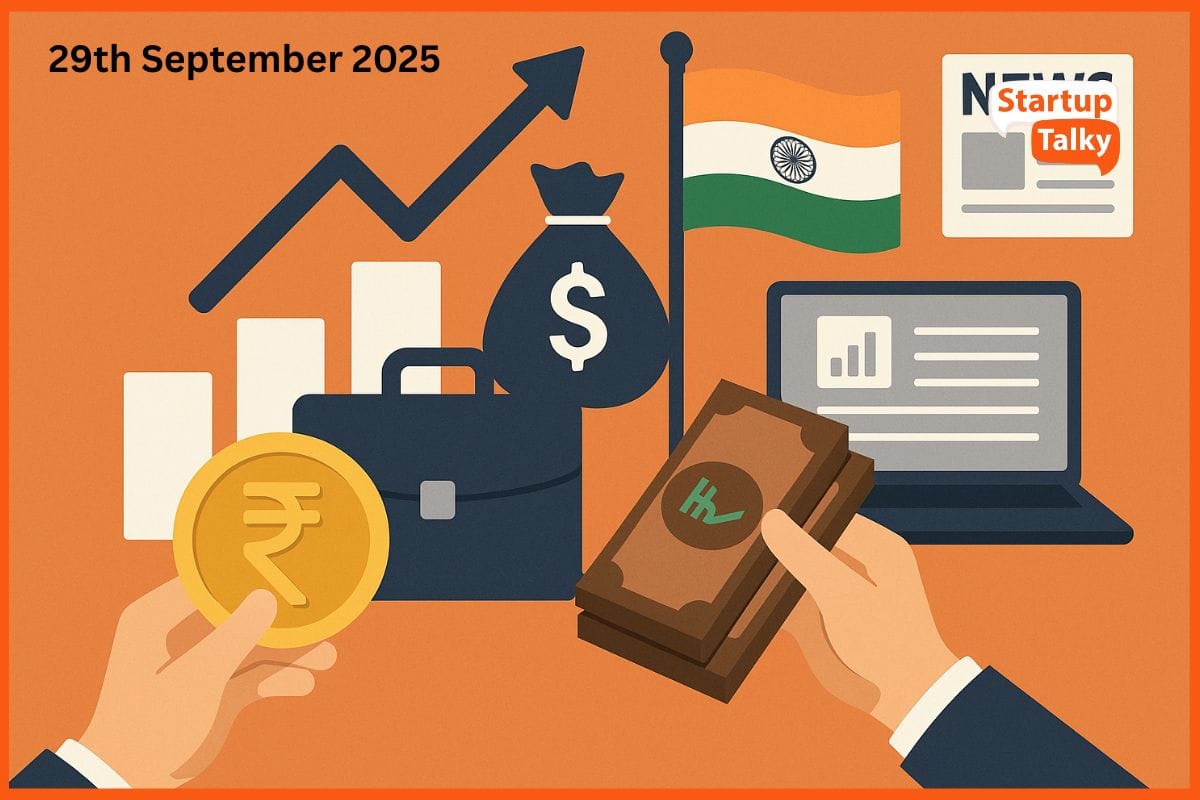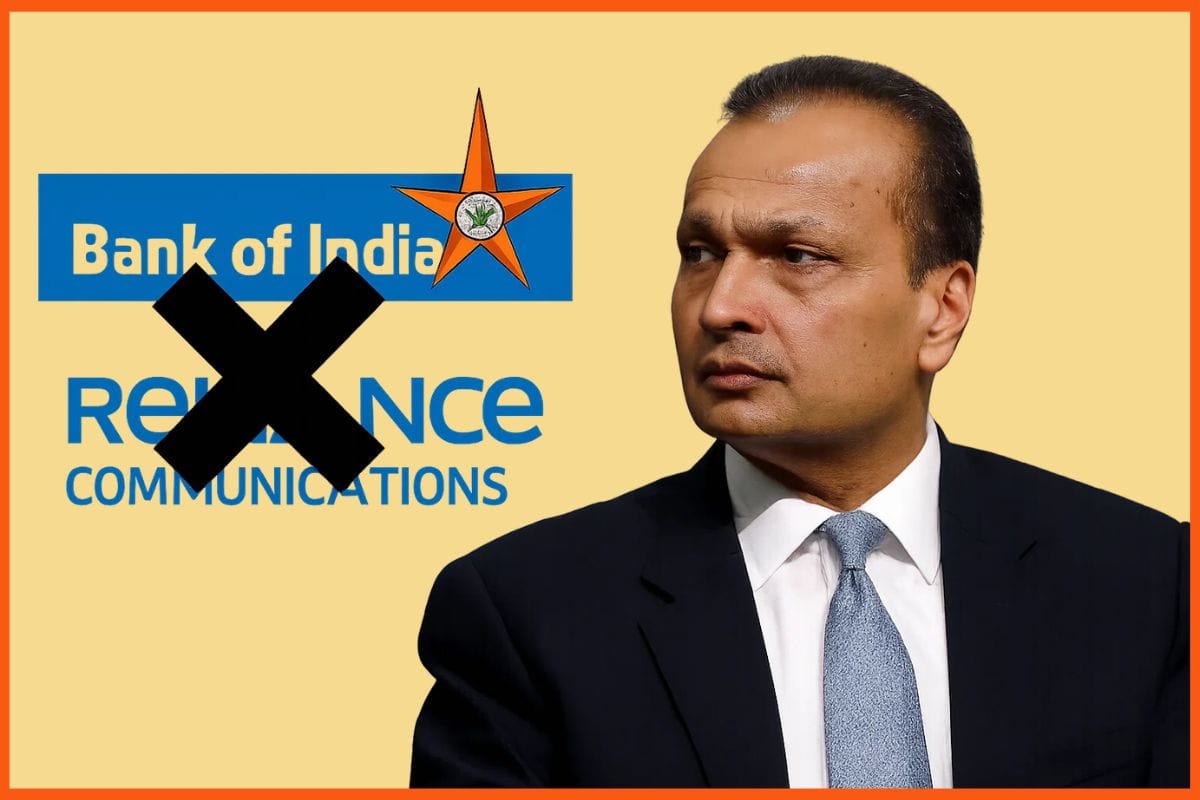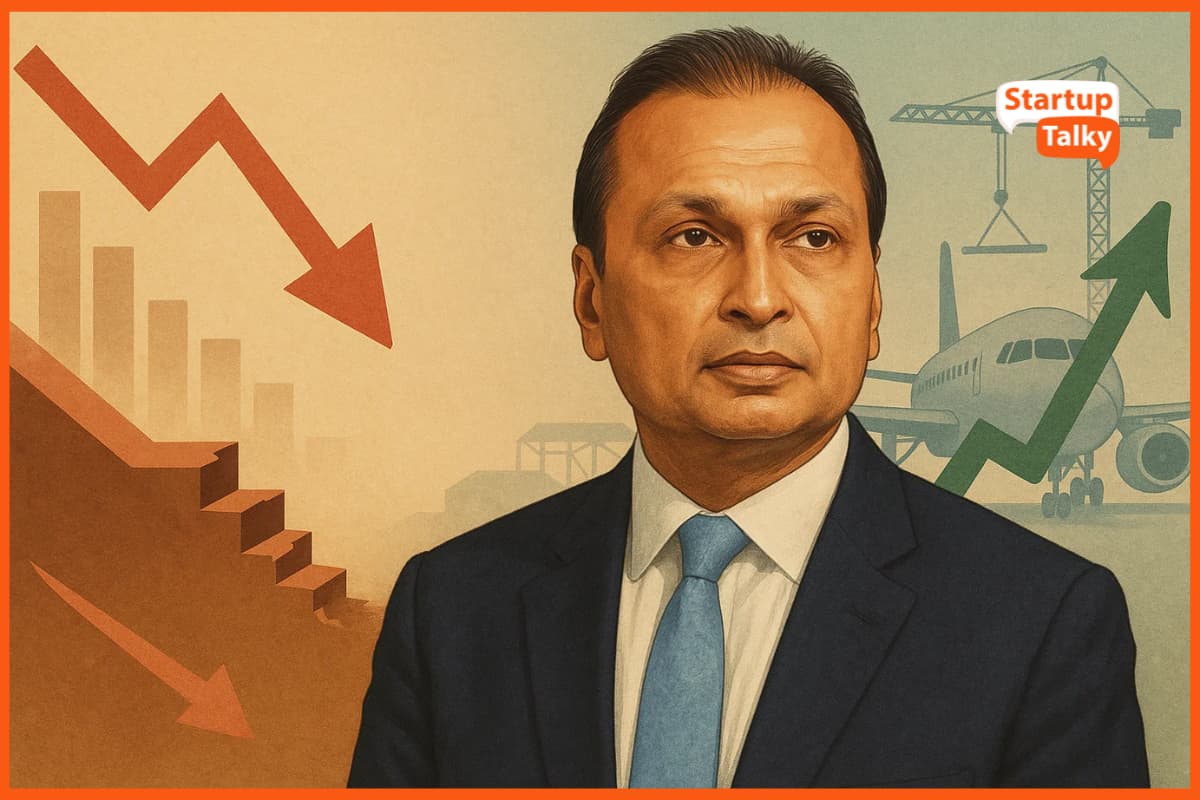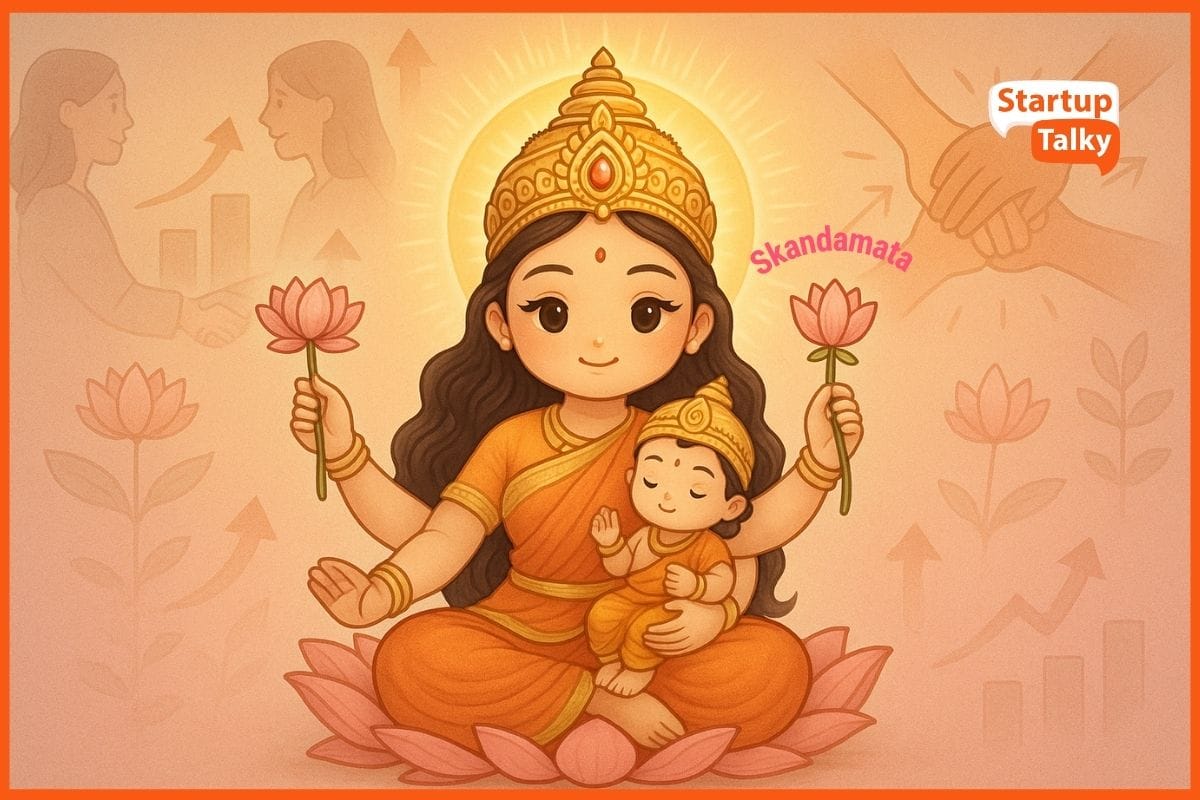This article has been contributed by Ms Leena Jhungroo, Managing Director, Travel Lounge Leisure & Tours Ltd.
In a time when travel has shifted from luxury to lifestyle, innovative travel start-ups are changing how we travel by integrating convenience, personalization, and sustainability. These innovators are utilizing technology to provide personalized experiences while incorporating sustainability practices throughout the journey. Ranging from carbon-neutral booking platforms to AI-powered itinerary planners that provide economic opportunity for local communities, they are showing the world that travel can be effortless and ethical. As Leena Jhungroo, Managing Director, Travel Lounge Leisure & Tours Ltd. states: travel moving forward must cater not just to one’s preferences, but the needs of the planet and its inhabitants.
Convenience
Redefining Seamless Travel: A crop of new-age travel start-ups is disrupting the convenience of travel. These companies, utilizing an end-to-end service model, are eradicating years of pain points from travel, allowing travellers to research, book and manage their itinerary in one digital environment. These digital-first services provide features like live-predictive fares, instant re-booking, mobile check in and accommodating customer support all of which create improved transport and travel experiences in challenging scenarios. Many of these new travel companies are not only relieving pain points, they are also creating elements of wellness and productivity within the journey. Some of these could include access to quiet spaces for work or resting, and also flexible short-term stays so that travellers can recharge during layovers.
Customization
Innovative travel start-ups are changing how people venture around the world by prioritising personalization in their model. Rather than generic itineraries, they curate itineraries based around the individual’s passions, whether they be culinary explorations of hidden neighbourhoods, private art walks with local curators, or immersive outdoor experiences catered to a traveller’s pace and desires. This shift from passive sightseeing to meaningful engagement has also given rise to more equitable, culturally rooted experiences. By blending global standards of service with local authenticity, these platforms make the case that true seamless travel isn’t just about convenience, it’s also about the journeys, that have a personal, purposeful connection to the places we have visited.

Sustainability
Building Tourism Models of the Future: Innovative travel start-ups have broken with convention, integrating sustainability as part of their business models to help shape the future of tourism. They engage in eco-conscious partnerships with local suppliers who value ethical sourcing, renewable energy, and low-impact operations, so that the travel footprint is minimal. Their use of community-based tourism is also a critical element – a concept that places locals in decision-making positions, repeatedly.
It simultaneously showcases the local culture while providing authentic, immersive experiences. Start-ups utilize transparency and trust in their approach with travellers. They share sustainability metrics and third-party certifications as a way to empower travellers with information to make choices. And, lastly, sustainability storytelling is also important to inspire action by demonstrating positive impacts through narratives that shift travel from a form of consumption to a form of contribution and supports responsible tourism on a global scale.
Partnerships & Ecosystem
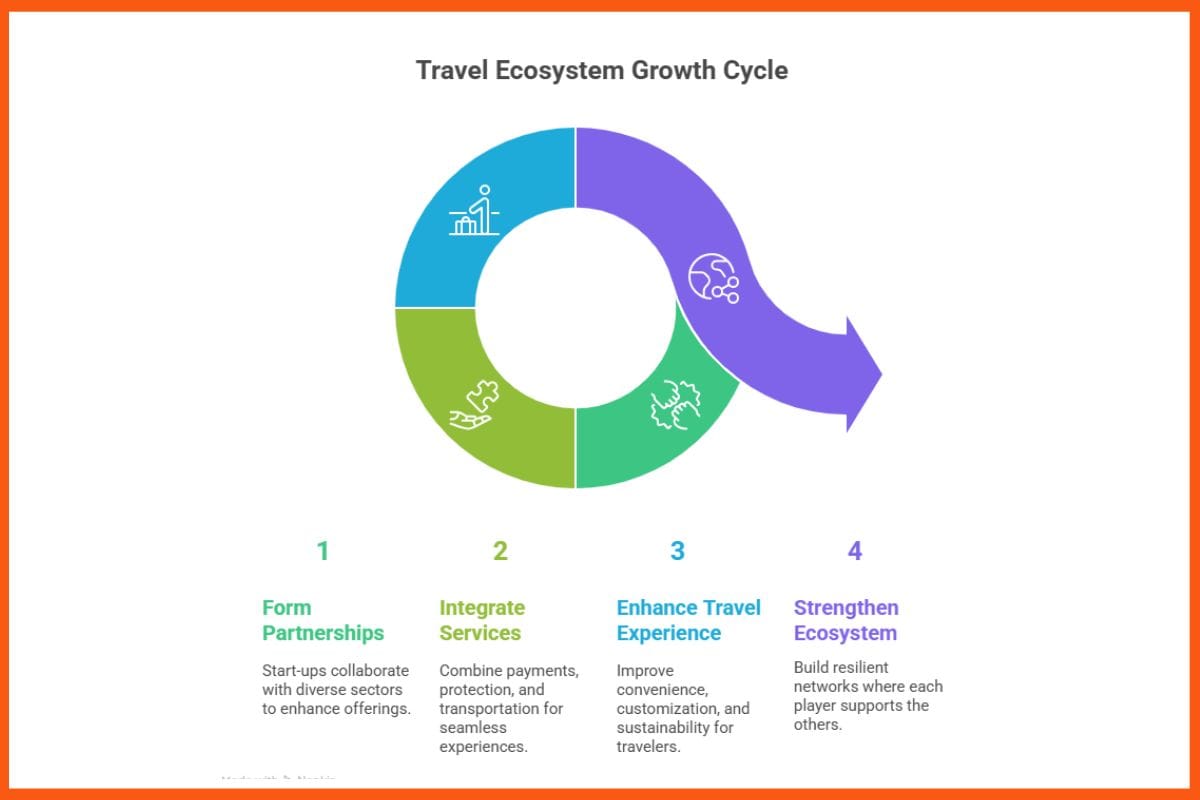
Start-ups are realizing that sustainable growth lies not only with their own offerings, but also with adding themselves to ecosystems. Rather than focusing on standing alone, start-ups are working with participants in finance, insurance, mobility, hospitality, and local communities to develop layered value propositions that take travel innovation beyond conventional travel models.
By combining seamless payments, travel protection, sustainable transportation, and added value to the authentic community-based stay experience, they are integrating the trip in a way that combines convenience, customization, and sustainability. This canvas of an ecosystem benefits the travel experience, while enabling more resilient, future-ready networks where each player’s advantages support the rest of the network, and the traveller enjoys a coherent, well-designed end-to-end experience.
Human Touch in a Tech-First World
As travel start-ups in India are working to improve and speed up journeys, the real challenge is to keep travel human. AI can map itineraries in just minutes and via algorithms can book entire vacations in seconds, but convenience does not produce connection. The modern traveller chooses experiences that are seamless journeys as well as personal experiences that retain their preferences, anticipate their needs, and serve small moments of layering care. Innovative start-ups pair technology with human intuition: curators that remediate interferences, the concierge that surreptitiously layers special touches that turn a trip into memories. In this age defined by automation, emotional resonance breeds trust. The future of seamless travel will belong to the product fixers that pair speed with soul.
Travel start-ups are transforming the travel industry by demonstrating that convenience, customization, and sustainability can be achieved. Through technology, they are simplifying travel planning and adding personalization, but are also advocating for sustainable practices that benefit the local community and planet. As travel becomes a way of life, these innovators offer a model for a more conscious future where every trip is effortless, meaningful, and in alignment with global sustainability goals.


